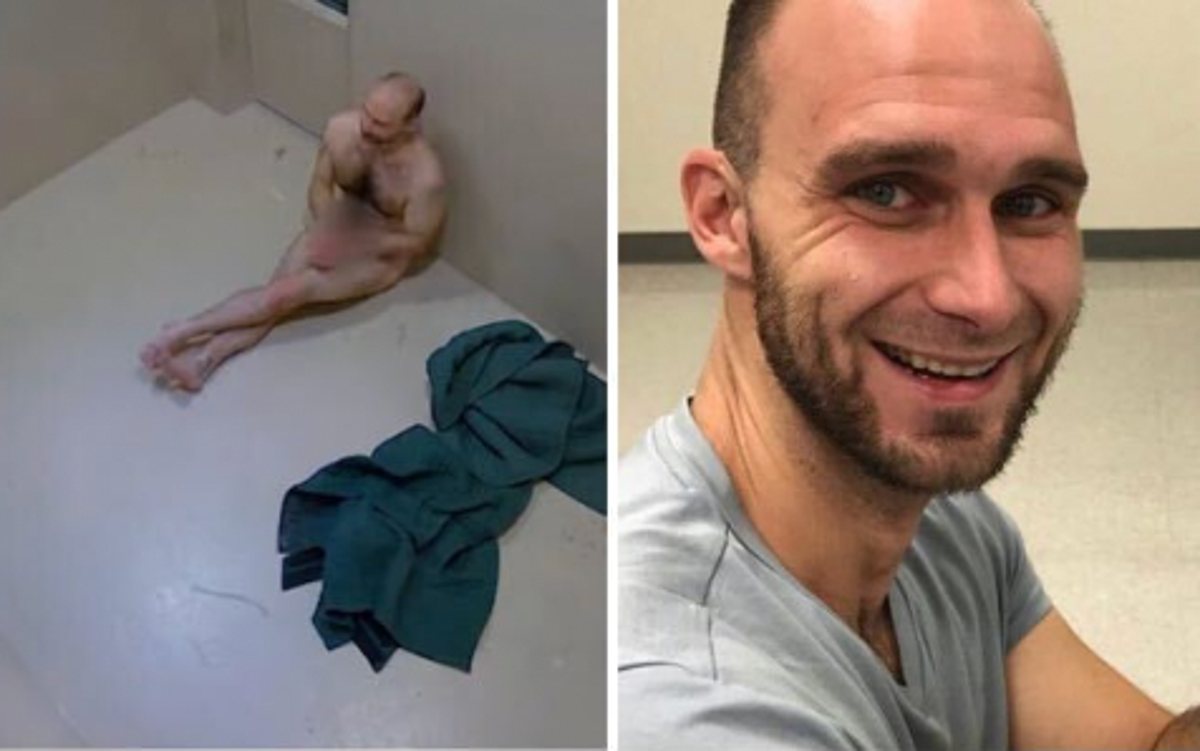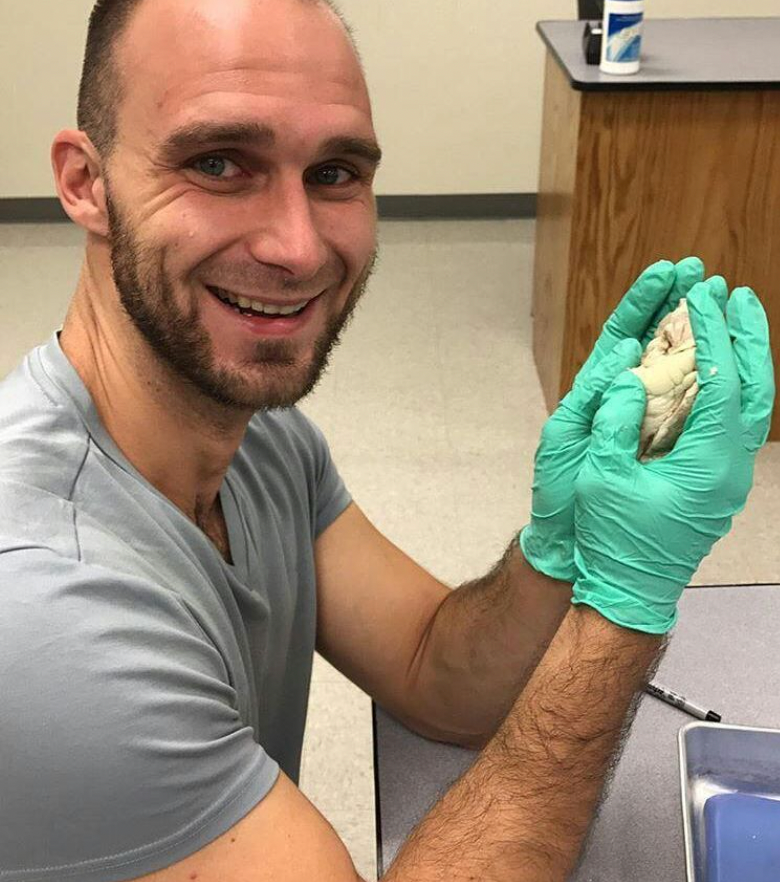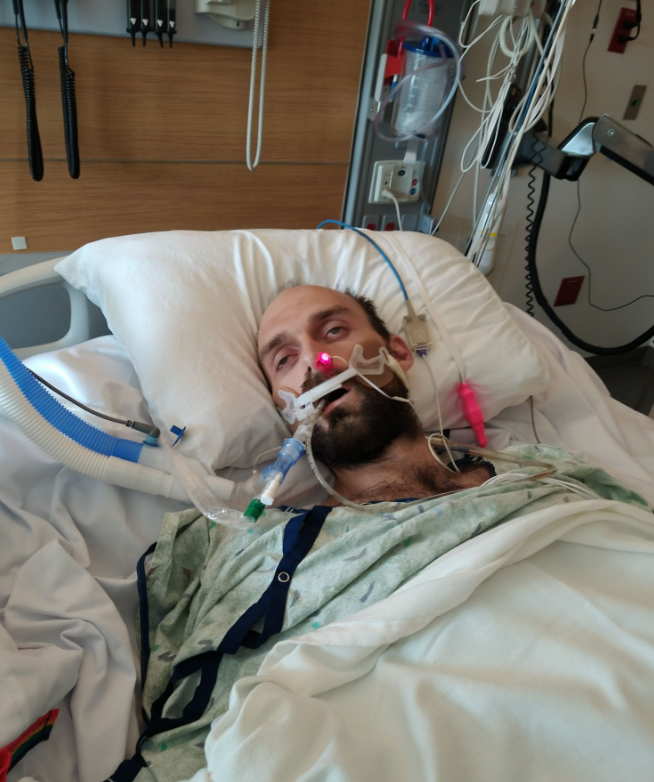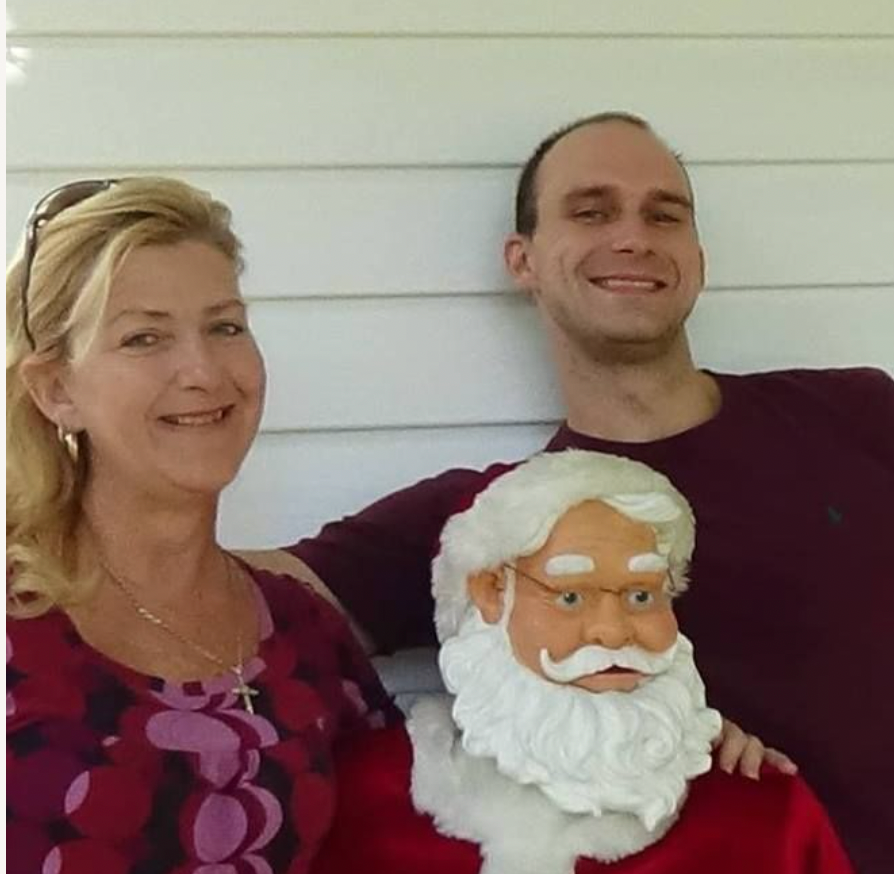
Twenty days after Josh McLemore first arrived at Jackson County Jail in Seymour, Indiana, his malnourished and dehydrated body gave his last breath.
McLemore was originally taken to a hospital facility in the summer of 2021, where his family hoped he could receive treatment for a continuing episode of schizophrenia. But after an off-duty police detective witnessed him pulling a nurse’s hair during his crisis, McLemore landed in jail.
He was never officially booked in. His photographs and fingerprints were never taken, and no intake medical or mental health screening was ever conducted.
Instead, an evidently distraught and naked McLemore was placed in a small, at-all-times fluorescently lit and windowless cell, where he would spend the remainder of his confinement without being able to escape the acute psychotic episode he was experiencing.
McLemore barely ate or drank anything and spent his waking hours staring into space, licking the walls, chewing styrofoam, speaking gibberish, smearing his faeces on the walls and rolling around in the trash. His cell became filthy with his urine and defecation, and the food that he didn’t eat.
Within three weeks, he lost 45 pounds. His body turned emaciated and his face sunken before the eyes of several staff at the jail that monitored his every movement.
Paramedics were eventually called, but by then his condition was so dire that he had to be airlifted to a hospital in Cincinnati. On 10 August, McLemore died of multiple organ failure stemming from starvation as a result of his “altered mental status and untreated schizophrenia.”
His family is now suing jail staff for their alleged negligence and failure to prevent McLemore’s death. As part of the lawsuit, they’ve submitted more than 400 hours of video that they say show the “inhumane conditions” of McLemore’s confinement during his active psychosis.
Here’s everything we know about the case:
‘Josh wasn’t a criminal, he was mentally ill’
McLemore had a history of mental health illness and substance abuse. He was taken to a hospital in the summer of 2021 after his mother became concerned because he was not answering her calls.
At his mother’s request, McLemore’s landlord checked on his apartment and found him disoriented and lying on the floor. He was then transported to the Schneck Medical Center, where doctors recognised his symptoms were consistent with an acute mental health crisis and drug use.

Although McLemore was described as “somewhat cooperative” while being transported in the ambulance, EMTs noted that he did not respond well when touched.
At the hospital, McLemore pulled a nurse’s hair after she touched him on the shoulder. A hospital security guard, who was also an off-duty Jackson County Sheriff’s detective, first told Josh to get back into bed and not to touch the nurses.
According to the lawsuit, McLemore complied but the guard then reached out to the Seymour Police Department.
Four officers dispatched to the hospital arrested McLemore, placing him in handcuffs and leg shackles while he was only wearing his underwear. He was taken to the Jackson County Jail, which is 10 miles away from the hospital. Jail staff then skipped standard book-in procedures, the lawsuit alleges.
“Josh McLemore wasn’t a criminal. He was mentally ill and in crisis. He was out of touch with reality and needed help. This is glaringly obvious to anyone who watches the videos of him in his isolation cell,” Hank Balson, an attorney for McLemore’s family, told The Independent on Thursday.
“But instead of getting Josh the care he so desperately needed, the Jackson County Sheriff and his staff left Josh alone in his cell, naked, barely sleeping or eating, for almost three weeks as he wasted away in front of their eyes,” Mr Balson added. “This is not only unconstitutional, it’s immoral.”
McLemore was kept locked up in his cell for 24 hours a day except when jail staff strapped him in restraints so they could put him under the shower.

McLemore ‘was sleep deprived and had virtually no access to a restroom’
Because of his mental health state, McLemore smeared his faeces on the walls, spilt food on the floor and tore up the storyfoam boxes and paper bags that came with his meals. He defecated and urinated on the floor. His cell had a bathroom attached but it was kept locked nearly the entire time he was confined, according to the lawsuit.
“Jail staff were aware of this from personal observations and from being able to monitor all of Josh’s activities through a continuous real-time video feed,” the lawsuit states. “... But they did nothing to intervene or secure needed medical or mental health care until it was too late.”
Attorneys for McLemore’s family also said that an Indiana State Police detective who reviewed the jail surveillance video as part of an official investigation concluded that McLemore slept for approximately 15 hours in total during the roughly 20 days he spent at the Jackson County Jail, or less than an hour every day.
“Extreme sleep deprivation is dangerous. It can cause hallucinations, mood changes, distorted thinking, and delusions after just 24 hours—even in healthy people without a preexisting mental illness,” the lawsuit argues.
Filings also allege that McLemore weighed 198 pounds when he arrived at the jail but because of his psychosis, he ate and drank very little. He weighed just 153 pounds when he was transported to the hospital.

“Josh’s death wasn’t the result of a simple error in judgment. Every officer who worked in that jail over the three weeks Josh was there could plainly see that he was not in his right mind and was not able to care for himself. But not a single one knew what to do,” Mr Balson said.
“The jail had no mental health staff, and the single LPN who worked there three or four days a week, whose job it was to make sure seriously ill people in the county’s custody got the care they needed, barely interacted with Josh and ignored the obvious risks of his condition.”
The only times McLemore interacted with guards was when they forcibly put him into restraint devices so they could shower him and clean his cell. The last time that McLemore was showered, he was so weak that he couldn’t keep his head and arms in place.
Mr Balson argues that the lack of food and water, extreme sleep deprivation, lack of human contact, and lack of any care or treatment ultimately caused McLemore’s death.
Another inmate died at the jail a month before McLemore
Four days before McLemore was brought to the Jackson County Jail, Ta’Neasha Chappell also died after begging staff at the facility for medical care.
Chappell, 23, was at the jail for alleged theft charges. She made several attempts to get help for more than 15 hours, and ultimately died as a result of probable toxicity with an unknown substance, according to The Courier-Journal. Chappell’s family is also suing the jail.
According to the outlet, the jail has a history of allegations of medical negligence and overcrowding.
Last year, prosecutors in Jackson County said that no charges would be filed against staff at the jail because none of their actions constituted a crime, but noted that McLemore died as a result of prolonged lack of attention by staff “as a group,” according to WHAS11.

Jackson County Sheriff Rick Meyer, commander Chris Everhart, licensed practical nurse Milton Edward Rutan — the only medical professional employed at the jail — and Advanced Correctional Healthcare are named in the lawsuit.
Months after McLemore’s passing, his mother also died unexpectedly. Now his family says they want to ensure no one has to endure the heartbreak of losing a loved one under the circumstances that McLemore experienced.
“Hopefully this lawsuit will force Jackson County and other counties to treat the people in their jails with humanity – especially people suffering from mental illness,” McLemore’s aunt Lita Ladner told the Guardian in a statement.
“We want to send a message that jails cannot treat people like this. We want to make sure other families don’t have to go through the kind of pain our family has been forced to endure from this senseless neglect.”
McLemore’s family is suing for compensatory damages and legal fees, and punitive damages against the defendants named in the lawsuit. The Independent has reached out to the Jackson County Jail for comment.







